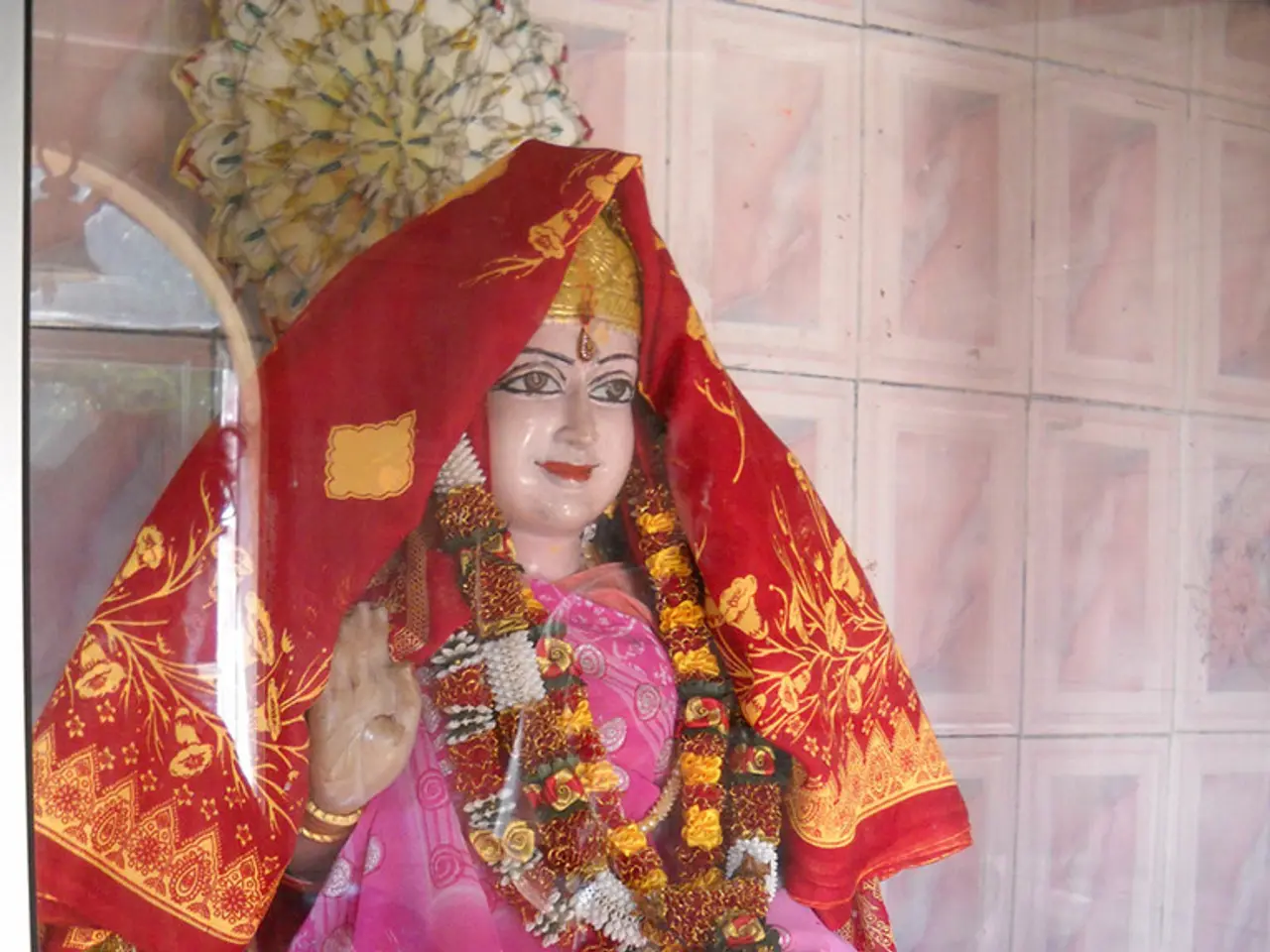Soul's Guardian Deity in Greek Mythology: Psyche
=====================================================================
In the rich tapestry of Greek mythology, the story of Psyche and Cupid (Eros) stands as a captivating allegory of love, trials, and enlightenment. This narrative, primarily recounted in the Latin novel "Metamorphoses" by the Roman writer Apuleius, follows the journey of a mortal princess named Psyche.
Born as the youngest child of a Greek king and queen, Psyche was also known for her extraordinary beauty. However, her beauty was so mesmerising that it caused Aphrodite's temple to stand empty as the people gathered to adore the beautiful young princess instead. This, in turn, sparked the jealousy of Aphrodite, the goddess of love and beauty.
Cupid, the god of love, had fallen in love with Psyche after pricking himself with his own arrow. To punish Psyche, Aphrodite subjected her to a series of trials and tasks to complete in order to earn forgiveness and any hope of being reunited with her husband.
The first task given to Psyche was to sort a pile of barley, wheat, beans, and poppy seeds by nightfall. In her desperation, a train of ants passed by and took pity on Psyche, sorting the grains themselves.
The second task was to retrieve a tuft of golden fleece from a herd of aggressive rams. Psyche was advised by the Potamoi, the god of the river, to wait until the day grew cooler and the rams settled, then she could venture into the grove and collect tufts of fleece.
The third task was to climb a high peak and retrieve water from a black spring that fed the marshes from which the river Styx flowed. Zeus sent his eagle to retrieve water from the spring for Psyche.
The fourth and final task was to travel to the Underworld and retrieve a sample of Persephone's beauty. Despite the seemingly impossible nature of these tasks, Psyche persevered, embarking on a series of trials and tasks to win back Cupid's love and the favour of the gods.
Eros flew to Olympus, beseeched Zeus to intercede on their behalf, and was granted the help needed to win Aphrodite's favour. Demeter, the agriculture goddess, took pity on Psyche and advised her to go to Aphrodite and offer her service in exchange for forgiveness.
Upon completing her tasks, Psyche was offered a cup of ambrosia, granting her immortality and elevating her to godhood. Eros returned to Psyche, restored her to life, and they were married before all the Greek gods. The union of Eros and Psyche produced a daughter named Hedone, the goddess of pleasure.
The myth of Psyche is often interpreted as an allegory for the journey of the soul and the trials and challenges one must face to attain true love and enlightenment. The Westwind Zephyrus, playing the role of a gentle and favorable wind in "The Golden Ass," symbolizes a positive and guiding force in the narrative, aiding in the transport and movement of Psyche's soul on her transformative journey.
Read also:
- Understanding Hemorrhagic Gastroenteritis: Key Facts
- Stopping Osteoporosis Treatment: Timeline Considerations
- Tobacco industry's suggested changes on a legislative modification are disregarded by health journalists
- Expanded Community Health Involvement by CK Birla Hospitals, Jaipur, Maintained Through Consistent Outreach Programs Across Rajasthan








